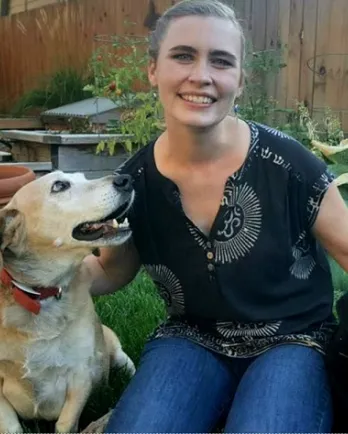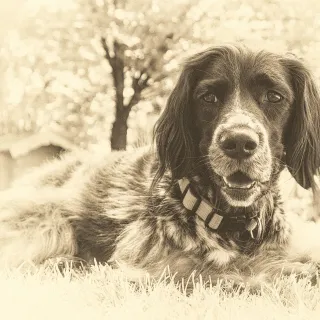Adopting Retired K-9s and Military Dogs - by Katie Kapro
Adopting any senior dog is a tremendous gift to both the person and the pup—they enrich our lives as much as we do theirs. And that, obviously, is an oversimplification. Wisdom says that choosing the right dog is all about finding the best animal for one’s environment and temperament. But there’s even more to it than that.
There are some dogs that, like many of us, have spent their lives working. In the case of military and police dogs, they often develop skills that can make them harder to adopt-out once they retire from service. Military working dogs (MWDs) and police K-9s often receive attack training and other specialized training that make it challenging for them to reintegrate into the noncombat world.
Police dogs, for example, are trained to perform the following K-9 law enforcement jobs:
- Detecting explosives
- Apprehending suspects
- Defending officers
- Detecting drugs
- Search and rescue
- Finding cadavers
It only makes sense that many dogs would come out of that with some issues. Dogs, just like humans, can suffer from post-traumatic stress disorder. Canine PTSD can only be treated through retraining—showing the dog that the world is not always such a bad place—so landing in a patient and loving home is all the more important to these animals.
Advanced Canine Education, recipient of a 2016 Grey Muzzle grant, works with police dogs and their handlers, among others, to keep the dogs healthy throughout their career. It offers training that would otherwise have to be covered by the handlers themselves. Life as a K-9 means a lot of time cooped up in a squad car. ACE specializes in swim instruction, helping police dogs and their handlers train for underwater rescue situations and stay in top shape year round. The Grey Muzzle Organization grant will help ACE expand its program to help shelter dogs.
Once an animal is no longer on active duty, training programs can seem unobtainable. But they’re not. They just look slightly different. Programs are no longer subsidized by nonprofit organizations, and the owner of a retired police dog, for example, will be responsible for covering the costs of all training programs. There’s also the fun DIY option—if the dog doesn’t display anxiety around water, why not train him to swim laps in the pool or nearby lake? It’s a small effort when one considers how much it will enrich the life of a dog that has served the public for much of its life.
This sort of animal enrichment outlook has not always been the case.
Up until 2000 any military dog that was retired from service due to injury, sickness, or even just old age was euthanized or abandoned. The dogs were considered equipment rather than living animals. Not even their handlers were permitted to adopt them. Doesn’t that sound like something out of a dystopian science fiction novel?
In 2000, President Bill Clinton signed “Robby’s Law,” permitting decommissioned MWDs to be adopted by their handlers and capable civilians. A person with the right amount of patience, skill, and ability to care for a retired military or police dog is literally giving them a second chance at life.
Adopting a former police or military working dog often means putting in more time than it would with an animal that has experienced fewer trials during its life. Former military dogs up for adoption are classified in one of three categories:
- Suitable (can be adopted by a family)
- Guarded (requires special handling)
- Not Suitable (cannot be adopted by a civilian)
A dog classified as “guarded” will require special training classes and socialization. It’s unlikely to be the kind of dog that enjoys tagging along with its owner in a busy marketplace full of loud noises and smells.
Nonetheless, giving a dog a second shot at life is more than worth the extra training. And a retired senior dog’s capacity for loyalty is hard to surpass.
Have you adopted a former police or military working dog? Share your story with us in the comments!



